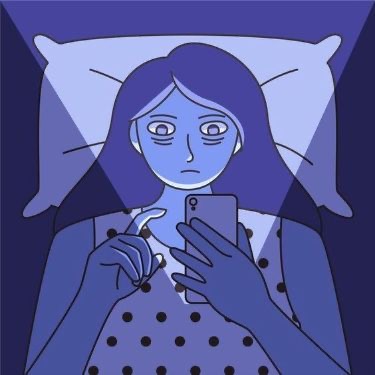What is ‘Revenge Bedtime Procrastination?’

Have you ever found yourself mindlessly scrolling through social media late into the night, even though you’re exhausted and know you have an early morning ahead? Or maybe you binge-watch just one more episode, despite your drooping eyelids? If so, you might be caught in the cycle of revenge bedtime procrastination — a modern phenomenon that reflects more than just poor sleep habits.
At its core, revenge bedtime procrastination is the act of deliberately delaying sleep to reclaim personal time that feels lost during a packed, often stressful day. It’s a psychological rebellion against the demands of a rigid or overwhelming schedule.
During the day, we may feel controlled — by deadlines, meetings, caregiving, studies, or work. But when night falls, the quiet hours become a tempting escape. It’s during this time that people indulge in activities they were too busy or too tired to enjoy earlier — scrolling through their phones, watching TV, playing games, or engaging in hobbies.
What makes this behavior so paradoxical is that it’s driven by a craving for freedom and self-care — yet it often results in more fatigue, stress, and burnout. It’s an attempt to take back time, but it ends up stealing from tomorrow.
Psychologists believe that this habit is not just about screen addiction or lack of discipline. It’s deeply tied to how we perceive time, autonomy, and emotional fulfillment. For people with little control over their daily routine — such as students, professionals, or caregivers — the late-night hours might feel like the only time they truly own. Staying up becomes a form of subtle resistance, a way to assert “this time is mine,” even if it means sacrificing precious sleep.
Unfortunately, chronic sleep deprivation can worsen mental health, reduce productivity, and impair decision-making — creating a vicious cycle. You wake up groggy, drag yourself through the day, and by nightfall, you once again feel the urge to reclaim your lost personal time.
So, how can you break the cycle?
- Start by recognizing the pattern. Are you truly enjoying your late-night activities, or are you just avoiding the end of the day?
- Create pockets of ‘you-time’ during the day. Even short breaks for hobbies, walks, or mindfulness can reduce the need to delay bedtime.
- Set a realistic and consistent bedtime routine. Prioritize wind-down activities that help you relax — like reading, journaling, or gentle stretches.
- Reflect on what you’re craving. Is it rest, leisure, creativity, or solitude? Understanding the need can help you meet it in healthier ways.
Revenge bedtime procrastination is not a failure of willpower — it’s a signal that something in your daily life needs attention. By listening to that signal with curiosity and compassion, you can begin to reclaim your time — not at the expense of sleep, but through a more balanced and intentional rhythm.



Comments (0)